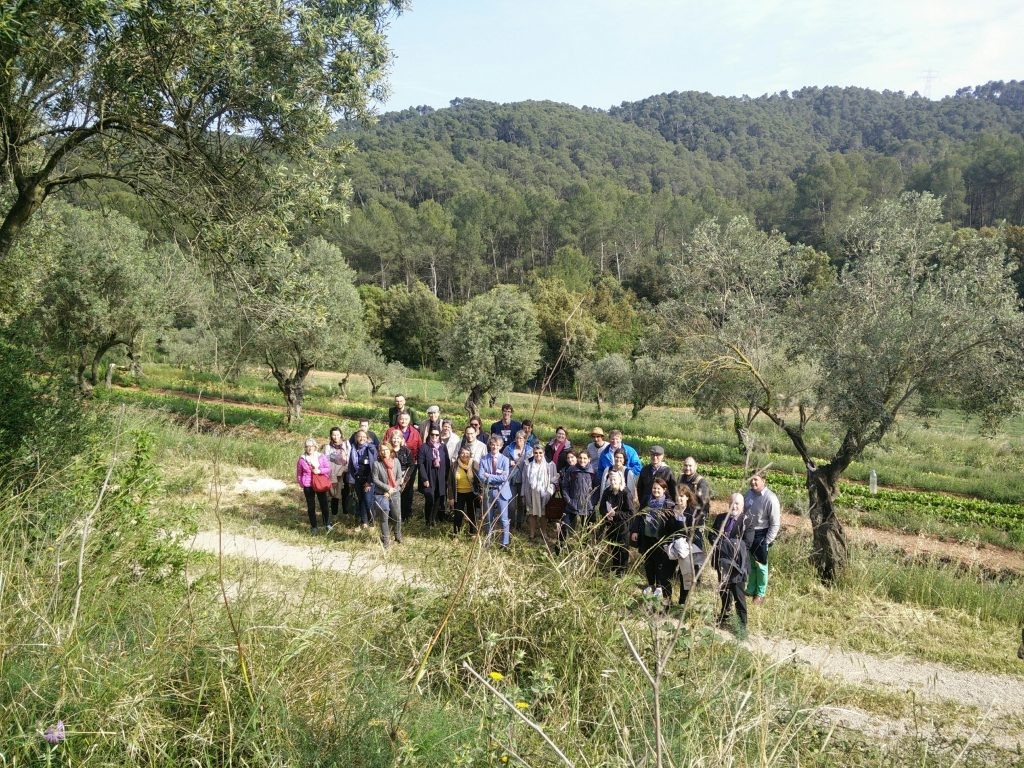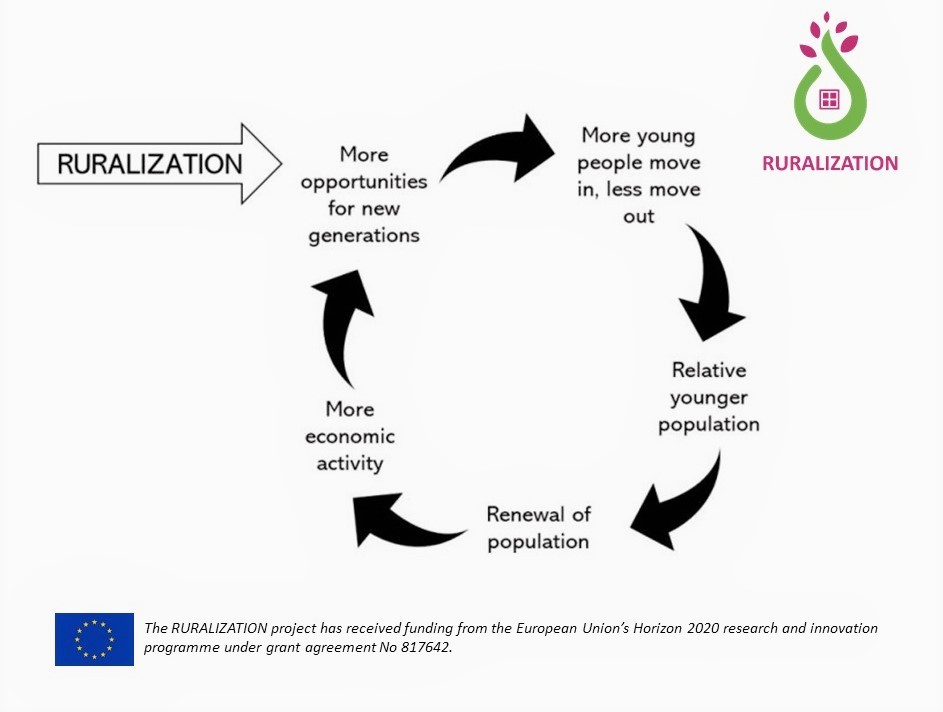
By Aisling Murtagh and Maura Farrell
Repositioning rural areas in response to problems of decline means overcoming complex, interconnected challenges. The RURALIZATION project is exploring innovative ways to overcome issues of rural regeneration and support generational renewal. Aisling Murtagh and Maura Farrell from the Rural Studies Cluster, Discipline of Geography, National University of Ireland, Galway tell us more.
The Need for Rural Regeneration
The challenge of rural population decline and need for rural communities to become more attractive places to live and work is a concern for rural people and policymakers alike. It is discussed in policy statements such as the 2016 Cork 2.0 Declaration ‘A Better Life in Rural Areas’ and the 2018 OECD Edinburgh Policy Statement on Enhancing Rural Innovation. With a smaller population to serve, decline can threaten the development or preservation of services such as public transport and healthcare. Additionally, it makes new services, such as broadband provision, less economically viable to develop the supporting infrastructure creating a digital divide.
The decline trend can also result in an age disparity, with rural demographics dominated by older populations rather than younger people. The age profile of European farmers in particular is an issue with a high proportion nearing retirement. Limited job and education opportunities, alongside a social scene that lacks the vibrancy of cities can make rural places not just unattractive but also an unrealistic option for youth.
A downward spiral of decline starts to emerge. Nonetheless, when youth leave rural areas, it isn’t necessarily forever, but realising the ambition to return can generally only occur if there are the work or entrepreneurship opportunities needed to sustain a livelihood. Farming as an option for rural youth has challenges stacked against it. Becoming a farmer can look unattractive compared to better paid occupations that offer potential for greater work-life-balance. But even beyond these considerations high farmland prices often means high capital investment is required to gain land access. Getting into farming through the family farm is the most realistic option, but this too is fraught with difficulties as many European countries face on-going succession and inheritance challenges.

To read more head to https://www.arc2020.eu/rural-dialogues-ruralisation/